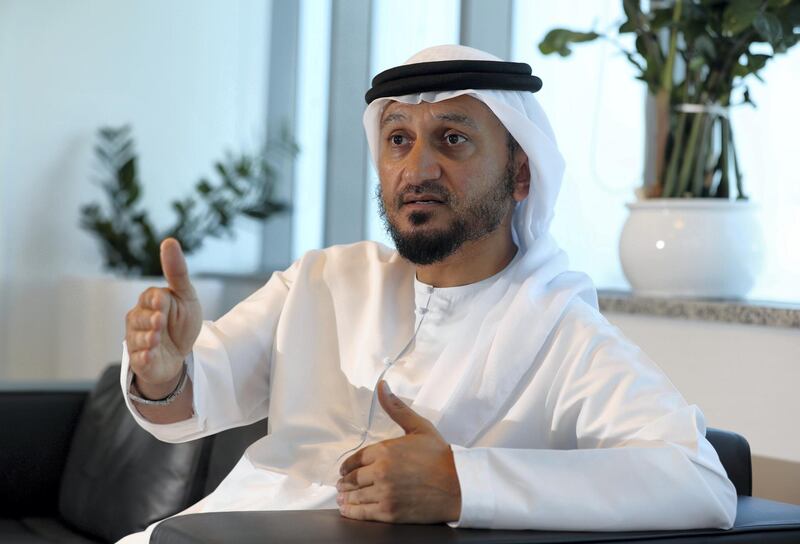The technology capital expenditure of Emirates Integrated Telecommunications Company (Du) will surge as much as 25 per cent to Dh1.5 billion this year as the telecoms operator aims to support 5G connectivity in the UAE, the second-biggest Arab economy, boasting more than 100 per cent mobile phone penetration.
"Considering the ongoing development in the 5G ecosystem, next year's allocation will certainly be higher," Saleem Al Balooshi, chief infrastructure officer of EITC told The National.
The new 5G network demands more computing power, analytics, memory and cloud infrastructure, which demands greater investment in data centres, Mr Balooshi said. Du, which currently operates ten data centres in the UAE, plans to open three more in the next two years. The telecoms operator has 120 5G towers in the UAE and is set to add 580 more by the end of the year, providing coverage to every populated area of the Emirates.
The fifth-generation wireless networks, commonly referred to as 5G, will be up to 100 times faster than the 4G network currently used by more than 3.6 billion mobile internet users around the world. According to US researcher Gartner, two-thirds of companies globally plan to install 5G by 2020 as its speed will enable new industries such as remote surgery through real-time video streaming and better gaming experiences and augmented reality services, as well as safe autonomous transport.
With the availability of 5G-enabled devices starting to hit the market, Du is anticipating a surge in consumer demand. The telecom operator and its Abu Dhabi-based competitor Etisalat are currently selling Chinese ZTE 5G smartphones. Du will receive the first shipment of Huawei handsets by the end of this month and is expecting Samsung's first 5G offering by mid-July, Mr Al Balooshi noted.
Despite US allegations against Huawei that its equipment aids Beijing in espionage (a charge the tech giant vehemently denies), Du is trusting Huawei’s technology. The company, however, has tested the brand's security components and handsets before deciding to allow them in the UAE market.
“Safety and security concerns are our top priorities and they are addressed in this case,” said Mr Balooshi.
“Our dedicated security teams even travelled to Huawei security centres in China to test the products … to ensure there is no cyber threat or any chance of hidden backdoor entry of bugs. We follow the same with all our suppliers.”
Huawei-made equipment will be used on a large scale when the next-generation 5G wireless network comes online, powering everything from self-driving cars to the Internet of Things in the UAE.
Mr Balooshi said there will be no disruption in Du’s 5G roll-out plans in case there is an unexpected delay in supply from Huawei. Its supply chain is threatened by disruption after the White House placed Huawei on a commerce blacklist, restricting trade with US suppliers and buyers, last month.
“We always have alternate plans and follow a multi-vendor strategy. Depending on the market dynamics, we have control to accelerate one supplier and slow down the other.”
Du is dealing with two 5G vendors – Huawei and Finnish equipment manufacturer Nokia.
Refuting claims that bandwidth used in 5G towers could cause environment issues, Mr Balooshi said the current roll-out is done only on 3.5 Gigahertz and 2.6GHz bandwidths, which are considered safe by regulators.
“There is a next stage of 5G where technology will go to very high bands of about 20GHz … there we might need to talk about safety,” he said.
Industry experts say due to the high demand on bandwidth, 5G waves do not travel long distances like predecessor 4G. To offset this, a large number of smaller antennas or mini towers need to be installed at each 5G site to ensure clear reception. Critics argue that this higher density of mini towers will release additional harmful radiation and increase the chances of human exposure.








